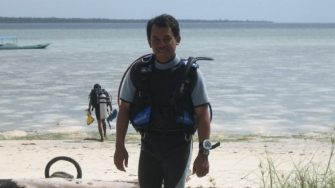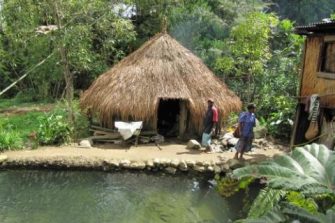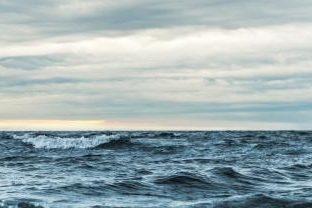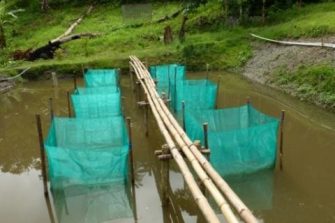
Mariculture has been proposed and practised as one of a number of sustainable economic activities in or near Marine Protected Areas (MPA) (TNC and CI, 2012). In Indonesia, ecotourism, small-scale fisheries and mariculture are the main sources of income for small island communities who live within or near MPAs. However, the designation of mariculture within or near an MPA has been largely based on political agreements between decision makers involved in the management of the MPA. Although this type of agreement might solve the potential conflict over the use of natural resources and seascape of an MPA, the success of mariculture and its potential impact on the protected area is difficult to measure. It is necessary to develop a site selection framework for mariculture in MPAs that combine qualitative and quantitative approaches to ensure the effectiveness and sustainability of aquaculture and to strike a balance between conservation and livelihood goals.
My research focuses on the integration of hard data (physical, biological and other environmental parameters) and soft data (stakeholder preferences and values) in determining site suitability for mariculture in or near an MPA. I will be using ocean colour imagery, hydrodynamic models, an oxygen and nutrient dynamics model, and decision-maker preferences using multiple-criteria decision analysis to produce site suitability criteria and decision support tools that are both scientifically and politically feasible for MPA stakeholders.
This research will also investigate the relative benefits and sustainability of mariculture for ecotourism and fisheries by measuring their sustainability indicators from the point of human systems and environmental systems.
Supervisor: Associate Professor Jesmond Sammut
Co-supervisor: Dr Jenny Beer
Publications
- Hatim Albasri, Suryawati, S.H., and Radiarta, I.N. 2011. Site Suitability Analysis for Seaweed Culture in Gorontalo Province. In Sudradjat et al. (Eds.), Policy Analysis in Developing Aquaculture: 113 - 136. CARD- AMAFRAD - MMAF.
- Hatim Albasri and Brian Szuster. 2010. Expert and Local Community Evaluations of Site Suitability to Support Mariculture Planning in Indonesia. Environment Asia, Thailand, 3(2): 109 - 114.
- Brian Szuster and Hatim Albasri. 2010. Mariculture and Marine Spatial Planning: Integrating Local Ecological Knowledge at Kaledupa Island, Indonesia. Island Studies Journal, Canada, 5(2): 237 - 250.
- Hatim Albasri, Wa Iba, La Ode M. Aslan, Sena De Silva and Geoff Gooley. 2010. Mapping of Existing Mariculture Activities in South-East Sulawesi “Potential, Current and Future Status. Indonesian Aquaculture Journal, 5(2): 173 - 186.
- Wa Iba, Hatim Albasri, La Ode M. Aslan, Sena De Silva and Geoff Gooley. 2010. Mariculture Site and Species Cultured In Southeast Sulawesi (Poster Presentation). World Global Aquaculture Conference, Thailand.
- Hatim Albasri, Adang Saputra, I Nyoman Radiarta, Erlania, and Achmad Sudradjat. 2010. Site Suitability using GIS for Seaweed Culture and its relationship with nearby Ujung Kulon National Park in Lada Bay, Banten, Indonesia. Proceeding of Aquaculture Technology Innovation Forum, Lampung Province.
- I Nyoman Radiarta, Hatim Albasri, Erlania and Achmad Sudradjat. 2010. Site Suitability Analysis for Green Mussel in Lada Bay, Banten Province, Indonesia (Analisis Spasial Kelayakan Perairan untuk Pengembangan Budidaya Kerang Hijau di Teluk Lada, Kabupaten Pandeglang, Provinsi Banten). Proceeding of Aquaculture Technology Innovation Forum, Lampung Province.
- I Nyoman Radiarta, Adang Saputra, Hatim Albasri, and Anjang Bangun Prasetyo. 2010 Site Suitability Mapping for Freshwater Aquaculture Development in Malang Regency, East Java Province (Pemetaan Kelayakan Lahan Pengembangan Budidaya Ikan Air Tawar di Kecamatan Wajak, Kabupaten Malang, Provinsi Jawa Timur). Proceeding of 7th Annual National Seminar on Fisheries and Marine Research, 24 Juli 2010. Gadjah Mada University.
- Wa Iba and Hatim Albasri. 2009. Are copepods viable options as live food for aquaculture hatcheries?. Indonesian Aquaculture Journal, 4(1): 65 - 73.
- Hatim Albasri. 2009. Site Selection for sustainable Net Cage Grouper Mariculture in Waters off Kaledupa Island, Indonesia (Master Thesis). Geography Department, University of Hawaii at Manoa-Hawaii- USA.





